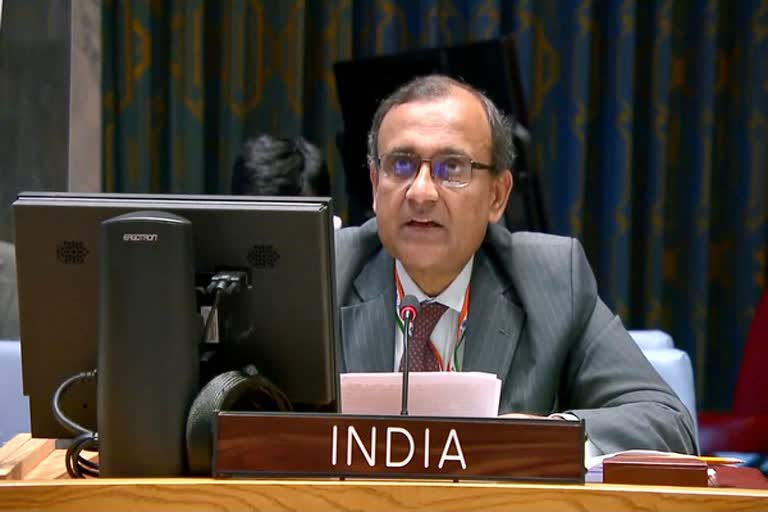New York: Underlining that the threat of terrorism is "grave and universal", India on Tuesday said it is a time to call out the countries that blatantly violate global commitments by harbouring terrorists and are willfully giving support to terror entities. Speaking at the debate in UN General Assembly, the Indian Ambassador to the United Nations TS Tirumurti said that the international community needs to adopt a policy of zero tolerance towards terrorism.
He was addressing UN General Assembly debate one adoption of a resolution on the 7th review of Global counter Terrorism Strategy (GCTS ). Adopted in 2006, the GCTS is a unique global instrument to enhance national, regional and international efforts to counter-terrorism. The UN General Assembly reviews the GCTS every two years, making it a living document attuned to Member States' counter-terrorism priorities.
Read: High time int'l community urged Pak to take verifiable' action against terror outfits: India at UN
Terming the GCTS a "major step forward", Tirumurti emphasised that it is essential for all member states to not "squander" the gains in the collective fight against terrorism. However, he also pointed out that the instrument has failed to resolve the "stalemate preventing the adoption of a comprehensive convention on international terrorism".He calls on "member states to walk the talk by implementing the provisions and fulfilling their obligations." "Time of call out those that blatantly violate global commitments by harbouring terrorists and terrorist entities and willfully giving support," he said.
"Justifying terrorism in any way, whether on grounds of religion, ideology, ethnicity or race, will only provide the necessary fodder for terrorists," he said.Tirumurti also highlighted that the rise of hatred and violent terrorist attacks is not confined only to three Abrahamic religions but includes other religions also -- Buddhism, Sikhism and Hinduism."The UN is not the forum where members states should take sides on religious phobias but should foster a culture based on universal principles of humanity and compassion," he said.
(ANI)



